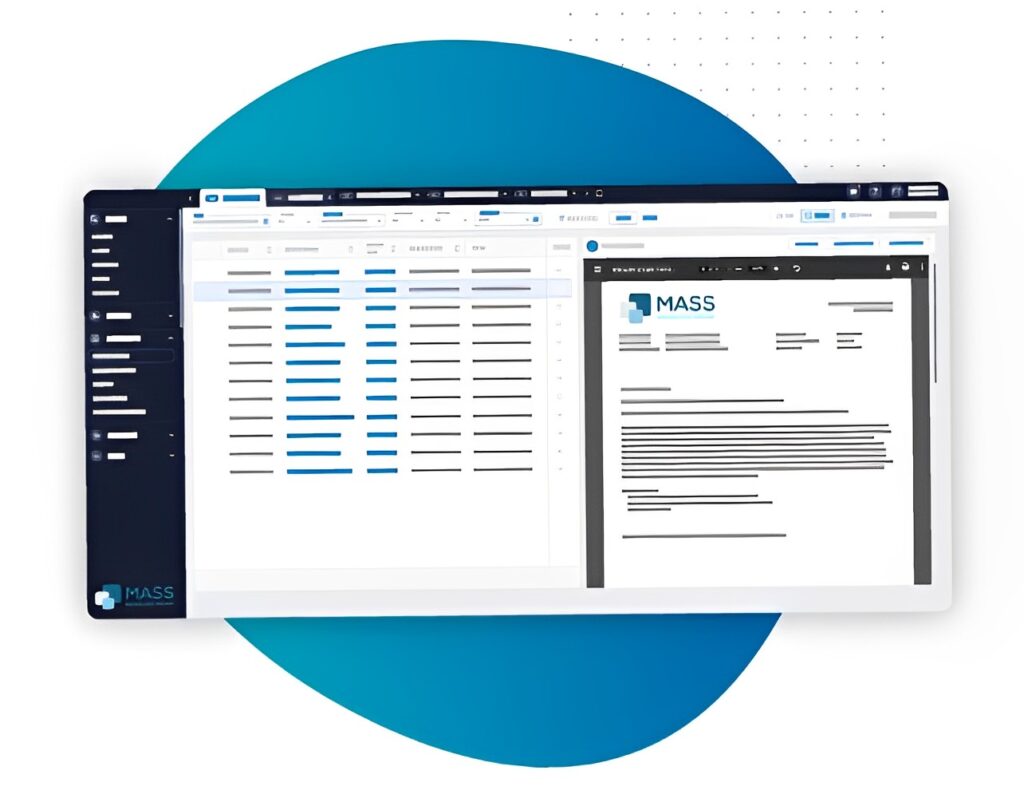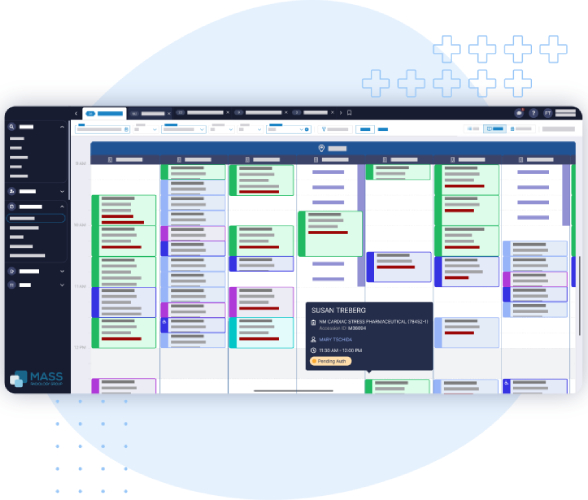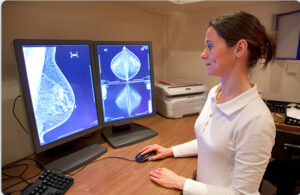Radiology Information System: Marvel For Modern Healthcare

In the dynamic landscape of modern healthcare, technological advancements have played a pivotal role in revolutionizing medical practices and streamlining patient care. Among these innovations stands the Radiology Information System (RIS), a remarkable and indispensable tool that has transformed the way radiology departments operate. As a powerful technological marvel, the RIS serves as the central nervous system of radiology practices, orchestrating and optimizing various crucial functions, from patient scheduling and image management to reporting and data analysis. With its ability to seamlessly integrate and communicate with other healthcare systems, the RIS empowers radiologists, clinicians, and administrative staff to collaborate efficiently, enhance diagnostic accuracy, and provide patients with a seamless and personalized radiology experience. In this introduction, we delve into the multifaceted capabilities of the Radiology Information System, exploring how it has become an invaluable asset in the pursuit of excellence in modern healthcare.
Efficient Patient Scheduling With Radiology Information System: Streamlining Appointments For Seamless Imaging
The Radiology Information System (RIS) has transformed the way patient scheduling is managed in radiology practices. With its intuitive interface and advanced functionalities, the RIS simplifies the process of booking and organizing imaging appointments. Patients can easily request appointments online, and the system automatically schedules them based on availability, modality, and priority. This streamlined approach not only reduces administrative burden but also minimizes waiting times for patients, ensuring a seamless and efficient imaging experience. Additionally, the RIS sends automated reminders to patients, reducing no-show rates and optimizing the utilization of radiology resources. Efficient patient scheduling with the RIS improves overall clinic workflow, enabling healthcare providers to focus on delivering high-quality care. (RIS) has transformed the way patient scheduling is managed in radiology practices. With its intuitive interface and advanced functionalities, the RIS simplifies the process of booking and organizing imaging appointments. Patients can easily request appointments online, and the system automatically schedules them based on availability, modality, and priority. This streamlined approach not only reduces administrative burden but also minimizes waiting times for patients, ensuring a seamless and efficient imaging experience. Additionally, the RIS sends automated reminders to patients, reducing no-show rates and optimizing the utilization of radiology resources. Efficient patient scheduling with the RIS improves overall clinic workflow, enabling healthcare providers to focus on delivering high-quality care.

Image Management Made Easy: How Radiology Information System Optimizes Data Handling?
Managing vast amounts of imaging data can be a complex task, but the Radiology Information System simplifies the process with its efficient image management capabilities. The RIS serves as a centralized repository for all radiology-related images and records, enabling easy access and retrieval of patient data. Radiologists can view and interpret images directly from the RIS, eliminating the need for manual image transfers and enhancing diagnostic efficiency. Moreover, the RIS supports the integration of various imaging modalities, providing a holistic view of the patient’s medical history and aiding in comprehensive diagnosis and treatment planning. With seamless image management, the RIS enhances collaboration among healthcare teams, enabling better patient care and treatment outcomes.
Real-Time Reporting And Insights: Harnessing The Power Of Radiology Information System
Radiology Information System’s real-time reporting capabilities empower radiologists and healthcare providers with instant access to critical patient data and imaging results. Through the RIS, radiologists can generate detailed reports with high-quality images and annotations, providing comprehensive insights into a patient’s condition. Real-time reporting facilitates timely communication between radiologists and referring physicians, expediting the decision-making process and ensuring prompt patient care. Additionally, the RIS offers analytics and data visualization tools, enabling healthcare administrators to gain valuable insights into radiology department performance, resource utilization, and patient outcomes. These real-time insights enable continuous improvement and strategic decision-making for optimizing radiology services.
Interoperability At Its Finest: Integrating Radiology Information System With Hospital Ecosystem
The Radiology Information System’s interoperability is a key strength, allowing seamless integration with the larger hospital ecosystem. By integrating with the Electronic Health Record (EHR) system and Picture Archiving and Communication System (PACS), the RIS facilitates the exchange of patient data and imaging information across different departments. This interoperability streamlines workflows and minimizes data duplication, enhancing the efficiency of radiology practice and improving patient care coordination. The integration also enables clinicians to access radiology reports and images directly from the EHR, ensuring a unified and comprehensive patient record. Interoperability at its finest ensures that radiology information is readily available when and where it is needed, promoting collaborative and patient-centered care.
Enhancing Diagnostic Accuracy: Leveraging Radiology Information System For Precise Analysis
Radiologists rely on accurate and timely data to make informed diagnostic decisions, and the Radiology Information System plays a vital role in enhancing diagnostic accuracy. By providing a comprehensive view of a patient’s medical history, previous imaging studies, and laboratory results, the RIS supports radiologists in making well-informed interpretations. The system’s advanced image processing tools and built-in diagnostic aids further aid radiologists in identifying subtle abnormalities and making precise diagnoses. Additionally, the RIS facilitates consultations between radiologists, enabling second opinions and expert collaboration to ensure the most accurate diagnosis possible. Enhanced diagnostic accuracy through the RIS leads to improved patient outcomes and increased confidence in radiology reports.
Seamless Workflow Coordination: Improving Radiology Practice With Information System
The Radiology Information System streamlines workflow coordination within radiology departments, optimizing the use of resources and minimizing delays. From patient check-in to image acquisition and reporting, the RIS facilitates a seamless flow of information and tasks. Radiologists can efficiently prioritize and manage their workload, ensuring that urgent cases receive immediate attention. The RIS also automates result distribution, ensuring that referring physicians receive timely reports, and patients receive their results promptly. Moreover, the system’s task tracking and status monitoring tools enable administrators to monitor workflow efficiency and identify bottlenecks for continuous improvement. With seamless workflow coordination, radiology practices achieve greater operational efficiency and overall patient satisfaction.
Data Security And Compliance: Safeguarding Patient Information With Radiology Information System
Patient data security is of paramount importance in healthcare, and the Radiology Information System prioritizes robust security measures to safeguard sensitive information. The RIS employs encryption and authentication protocols to protect patient data from unauthorized access and cyber threats. It also complies with industry standards and regulations, ensuring adherence to data protection laws such as HIPAA. Regular security audits and updates further enhance the system’s resilience against potential vulnerabilities. By prioritizing data security and compliance, the RIS instills confidence in both patients and healthcare providers, fostering trust in the radiology practice.
Innovations In Radiology Information Systems: Embracing The Future Of Healthcare Technology
The Radiology Information System continues to evolve with ongoing technological advancements, incorporating innovative features to meet the changing needs of the healthcare industry. From AI-driven image analysis to voice recognition for reporting, the RIS embraces cutting-edge technology to enhance efficiency, accuracy, and patient engagement. Integrations with emerging medical devices and wearable technology open new avenues for data collection and patient monitoring, further advancing the capabilities of the RIS. As healthcare technology continues to progress, the Radiology Information System remains at the forefront of innovation, promising a future of unparalleled possibilities for radiology practice and patient care.
Conclusion
The Radiology Information System stands as a transformative solution in modern healthcare, revolutionizing radiology practice with its comprehensive capabilities. From streamlining patient scheduling to optimizing image management and enhancing diagnostic accuracy, the RIS empowers radiologists and healthcare providers to deliver exceptional patient care. Through seamless integration with hospital ecosystems and real-time reporting, the RIS promotes collaboration and data-driven decision-making, ultimately leading to improved patient outcomes. With a strong focus on data security, compliance, and interoperability, the RIS instills confidence in patients and healthcare providers alike.
As the RIS continues to embrace innovation and stay at the forefront of healthcare technology, its potential to further revolutionize radiology practice and patient engagement remains unparalleled. As healthcare organizations continue to invest in this technological marvel, the Radiology Information System will undoubtedly play an increasingly pivotal role in shaping the future of radiology and the broader landscape of modern healthcare.

Lyle Vasquez is a technology blogger based in Connecticut. He has been passionate about technology since early childhood when he used to take apart and rebuild computers in his parent’s garage. Lyle’s tech-related blog posts are written to help others learn how to use the latest technology tools and devices. He loves to find new ways to integrate technology into everyday life. Lyle is a great resource for tech enthusiasts looking to stay up to date on the latest technologies.








